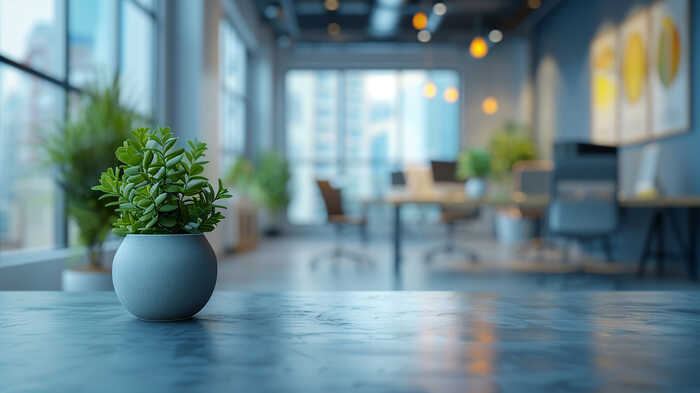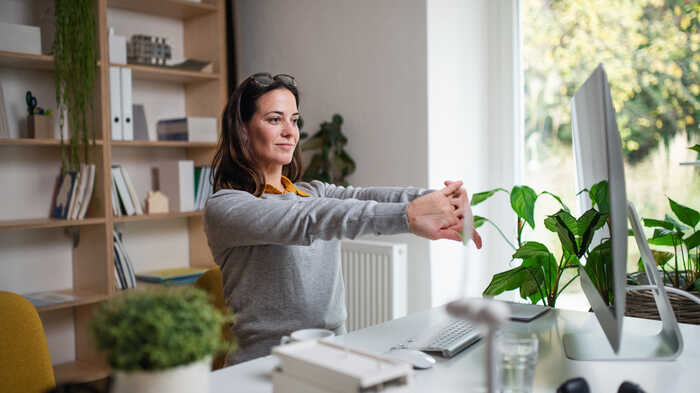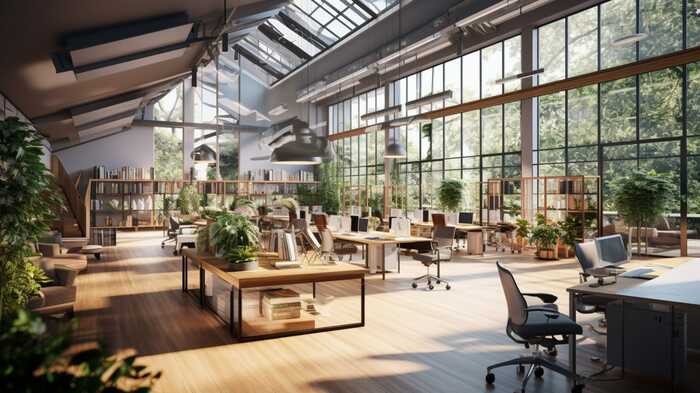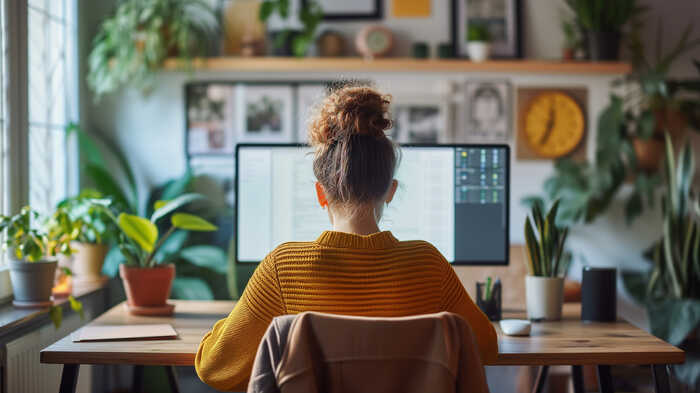Sustainable Office Trends For 2024
Sustainability has become a central theme in the world of office design in recent years. While homeowners look towards greener solutions for their domestic workspaces, businesses too are favouring office environments that balance productivity with ecological responsibility.
So, as the focus on practical, eco-conscious office design becomes evermore desirable — either at home or within commercial buildings — let’s take a look at some of the key features to consider when creating a sustainable workspace.

Biophilic design integration
The trend of integrating nature into office spaces continues to gain traction in 2024. This approach involves incorporating elements such as living walls, indoor plants, and natural light to create a more welcoming and stimulating environment.
A home office extension, for example, might feature a small indoor garden with a variety of houseplants or large bay windows overlooking a back garden. In corporate settings, integrating greenery into communal areas or incorporating natural materials like wood and stone can help encourage a sense of connection with the outdoors.
Net-zero energy initiatives
Achieving net-zero energy consumption remains a top priority for sustainable office design. This can involve reducing energy consumption through efficient building design and integrating renewable energy sources like solar panels and wind turbines.
Home office extensions can be equipped with energy-efficient appliances and LED lighting, while corporate buildings might invest in on-site renewable energy generation and energy-efficient HVAC systems to minimise their carbon footprint.

Flexible and adaptive workspaces
Flexibility is key in modern office design and space planning, allowing the environment to adapt to changing work styles and needs. In 2024, we see a continued emphasis on adaptable layouts and modular furniture solutions.
More and more, home office setups will feature convertible desks or multipurpose storage units that can be easily reconfigured. In corporate spaces, flexible meeting rooms and collaborative areas can facilitate teamwork and creativity, while adjustable workstations accommodate individual preferences for sitting or standing.

Sustainable materials and furnishings
Choosing eco-friendly materials and furnishings is essential for reducing the environmental impact of office spaces. This includes using recycled or reclaimed materials, as well as opting for products that are locally sourced and sustainably produced.
Someone embarking on a home office extension might incorporate furniture made from recycled wood or bamboo, while a commercial office space can choose to invest in carpet tiles made from recycled materials or low-VOC paint for improved indoor air quality.

Integration of smart technology
Smart technology plays a growing role in optimising energy efficiency and enhancing the user experience in office environments. This can include installing motion-sensing lights, smart thermostats, and occupancy sensors to reduce energy waste.
In home offices, smart devices like thermostats and lighting controls can be integrated with voice assistants for added convenience and energy savings. Similarly, in corporate settings, smart building management systems can help monitor and optimise energy usage across the entire facility.
Focus on wellness and ergonomics
Employee well-being is increasingly recognised as a crucial aspect of office design. This includes providing ergonomic furniture, adjustable desks, and designated wellness areas to support physical health and mental well-being.
Home office setups might include ergonomic chairs and standing desks to promote better posture and reduce fatigue. Meanwhile, in commercial office spaces, quiet zones, meditation rooms, and access to natural light can help reduce stress and improve overall employee satisfaction and productivity.
How can we help?
By focusing on practical solutions that promote sustainability, flexibility, and employee well-being, thoughtful office design can be a valuable commodity in both home and corporate environments. If you’d like to discuss your latest office design project with us, please do get in touch or book a free video consultation.
Posted on March 20th 2024

